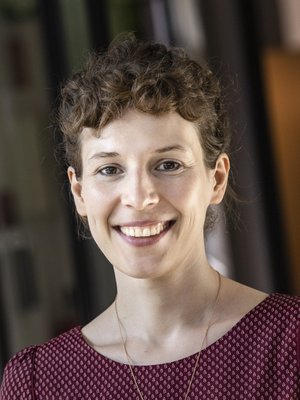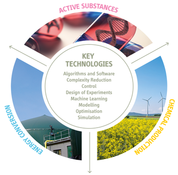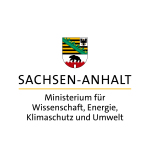Sina Leipold

Prof. Dr. Sina Leipold
Session: Circular Society - Research at the Interface of Technology, Societal Support and Individual Appropriation
Title: Grown Up Overnight -
What We Learn from Narratives
about the Circular Bio-Economy
Sina Leipold is head of the Department of Environmental Politics at the Helmholtz Centre for Environmental Research (UFZ) in Leipzig, she is jointly appointed professor of environmental politics at the Friedrich Schiller University Jena. She studied political science, history and social sciences in Bochum, Freiburg, Buenos Aires and New Delhi. She received her PhD in 2016 from Albert Ludwigs University Freiburg on the influence of interest groups on narratives of international forest policy, which was awarded the German Thesis Award (2nd Prize Social Sciences) for special societal relevance. In 2017-2021, she was a junior professor at the University of Freiburg, leading a research group on the "Circular Bio-Economy". She has been a visiting scholar at Yale University, University of Technology Sydney, Vienna University of Economics and Business, and Jawaharlal Nehru University New Delhi. Her research focuses on (environmental) discourse analysis and discursive agency, circular economy and bioeconomy, and transnational corporate regulation. When she is not researching and teaching, she enjoys mountain biking in her home state of Thuringia or in her adopted home state of Saxony.
Grown Up Overnight - What We Learn from Narratives about the Circular Bio-Economy
Understanding what narratives people share about the present and the future is critical for theorizing and creating social change. A prominent narrative on social change among the World Economic Forum, the G7 and individual countries is the circular economy. While scholars widely acknowledge that this narrative shapes policy development all over the world, its impact on individual policy processes hardly received attention.
This presentation presents select results from 5 years of research in the junior research group “Circulus”. We study (1) what characterizes a transnationally shared circular economy narrative, and (2) how it affects national policy processes aimed at a circular economy. Based on more than 120 stakeholder interviews from international organizations, the EU, different member states, and China, we demonstrate that a transnationally shared narrative emphasizes business opportunities, market creation, and scaling of solutions as levers for a circular economy. We demonstrate for two national policy processes, on food and packaging, how this narrative creates struggles over power, responsibilities or resource access and leads to policy outcomes that stakeholders evaluate as unambitious, hardly effective, or creating new problems.
We conclude by highlighting the need for a stronger engagement with the power and policy implications of the current circular economy narrative in global and national politics and its suitability to induce policy outcomes that people perceive as social change.








